News
Ekiti renames varsity after ex-Ondo gov, Olumilua

The Ekiti State House of Assembly on Tuesday passed a bill to amend the law of the newly-upgraded University of Education, Science and Technology, Ikere Ekiti, and renamed it after the late former governor of old Ondo State, Bamidele Olumilua.
The university, which was upgraded from the College of Education, Ikere Ekiti, is now to be known as the Bamidele Olumilua University of Education, Science and Technology, Ikere Ekiti when assented to by the Governor, Kayode Fayemi.
The bill for the amendment of the law which upgraded the college to university to the effect of the renaming of the university after Olumilua, was sponsored by Adeoye Aribasoye and supported by members via a voice vote at the plenary.
The speaker, Funminiyi Afuye, while speaking on the honour for the former governor, who died on June 4 at the age of 80, said, it was “to capture his contribution to the socio-political and economic life of Ekiti State and the old Ondo State in general”.
Afuye described Olumilua as “a man of integrity who deserves to be immortalised,” saying, “He (Olumilua) was the first Ekiti man to be elected as governor in the whole of Nigeria. He lived a very exemplary life, he resented cant and humbug.
“He occupied a very high level in the hall of fame in Ekiti that we need to let the generations yet unborn to know that somebody came known as Bamidele Olumilua.”
News
Hardship: As more northern youths push for mass protest, elders divided

Hardship: As more northern youths push for mass protest, elders divided
As some groups and individuals continue to push for the planned mass protest from August 1, youths from the North appear to be excited about it and have begun to warm up to the mass action.
There are therefore fears mostly from the government that it might disrupt social and economic activities.
A report by Daily Trust notes that a prominent tiktoker, Junaidu Abusalma Abdullahi, has been reported as one of those instrumental to promoting the idea among northern youth through the social media.
Only last week, another youth in Kano, Bashir Abubakar was accused of producing the #EndBadGovernanceInNigeria T-shirts.
Other than that not much is known about the organisers of the planned protest.
Even the government seems uncertain about where the idea is coming from as its organs point at different directions.
While presidential spokesman, Bayo Onanuga, accuses opposition elements, the National Orientation Agency (NOA) says it is the work of some fifth columnists in the Diaspora.
The Directorate of State Service (DSS) said in a statement that it knows the organisers, but did not provide details.
The reaction in the North has led to the involvement of clerics in the issue.
But rather than douse tension, their involvement has served to divide opinions on the proposed action.
While prominent clerics such as Sheikh Kabiru Gombe, Sheikh Sani Yahaya Jingir, Sheikh Aliyu Sokoto and Sheikh Aminu Ibrahim Daurawa are rallying against the planned protest, the likes of Sheikh Ahmad Gumi and Ibrahim Khalil Danshagamu have insisted there is nothing wrong with it if done in a peaceful manner.
Sheikh Gumi supports the idea of a peaceful protest as he views it as a means of conveying the grievances of the citizenry to the government.
Sheikh Jingir, on the other hand, is against it, saying the idea is conceived to make the Muslim-Muslim ticket of President Tinubu look bad.
“Just because there is hunger now in Nigeria, Christians against a Muslim-Muslim ticket, and Shiites and hypocrites who don’t like the Muslim-Muslim ticket are now calling for you to come out and protest. May Allah undermine all planned protests,” he said.
READ ALSO:
- Protest: APC says Tinubu can’t dump 1999 constitution
- Fuel queues return to Abuja, Ogun, Lagos, others
- Over 180,000 displaced from Gaza’s Khan Younis in four days – UN
Danshagamu said he is in support of the protest because it is an opportunity for people to claim their rights from the government due to the hunger and insecurity in the land.
Leader of Hisbah in Kano, Sheikh Daurawa, said he is against protest because Nigeria cannot allow what happened in Syria, Sudan, Libya and Iraq, where, according to him, protests were hijacked.
“There are people that want the country divided and have stockpiled arms and money waiting for the right opportunity. That’s why we are trying to prevent protests, not that we are afraid,” he stated.
As expected, the government is doing all it can to ensure that the protests do not hold, taking measures that include appealing to citizens to refrain from actions that could lead to anarchy, and involving the security agencies to caution against breaching the peace.
Minister of Information and National Orientation, Mohammed Idris, said the president has listened to all concerns and assured that efforts are on to address the challenges.
He said, “We also discussed the issue of the country generally and Mr President has asked me to again inform Nigerians that he listens to them, especially the young people that are trying to protest.”
Opposition figures like former Vice President Atiku Abubakar, have, however, criticised the federal government and its agencies for trying to abort the planned nationwide protest.
Atiku said it was ironical that those who protested against the administration of former President Goodluck Jonathan in 2012 are the ones trying to stifle other peoples’ rights to protest now.
But the government has said on several occasions that it is not against protest, but against the violence that may follow it if it is hijacked by certain elements.
An opposition lawmaker, who prefers not to be named, said given the ease with which the people were mobilised to join the Nigeria Labour Congress (NLC) strike a few months ago, the fear of government that the protest may be hijacked is not out of place.
“Remember that even the Endsars protest was hijacked while lives and property worth billions were lost,” he said.
It, however, remains to be seen if the protest would hold given the sharp division among major stakeholders.
Hardship: As more northern youths push for mass protest, elders divided
News
Protest: APC says Tinubu can’t dump 1999 constitution
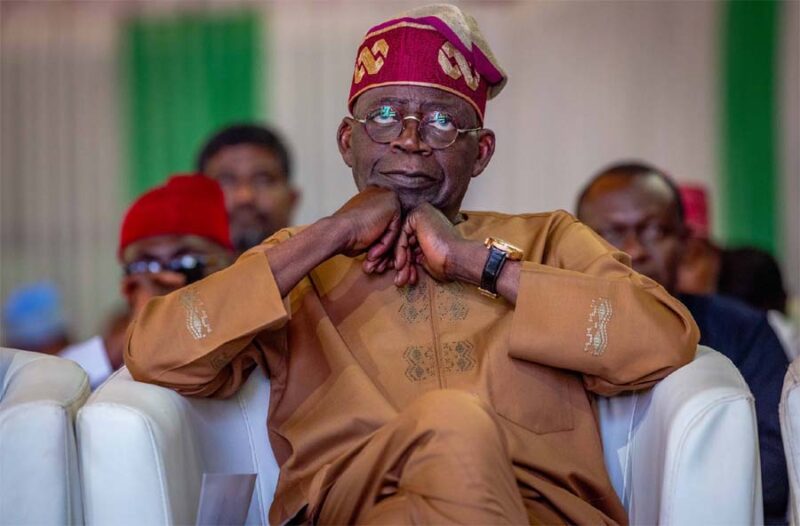
Protest: APC says Tinubu can’t dump 1999 constitution
The All Progressives Congress has urged organisers of the planned August 1 nationwide protest to shelve its agitation to have President Bola Tinubu scrap the 1999 Constitution, describing it as a tall order.
The ruling party disclosed this after a closed-door meeting with the Forum of APC State Chairmen to discuss the modalities of the proposed protest at the national secretariat in Abuja on Friday.
In the last two decades, the need to change the Nigerian Constitution has become a hot debate among several state actors and elder statesmen.
On March 18, The PUNCH reported how Lagos State Governor, Babajide Sanwo-Olu, joined former Commonwealth Secretary-General, Chief Emeka Anyaoku; former governors, notable diplomats, legal practitioners and other elder statesmen to advocate that Nigeria jettison the 1999 Constitution for lack of legitimacy.
But the ruling party through its National Secretary, Senator Ajibola Basiru, insisted that the renewed agitation to have the President dump the constitution he vowed to protect would amount to a mission impossible.
Basiru’s statement was a response to one of the 15 demands of the organisers of the proposed hunger strike protest.
The protest, scheduled to hold from August 1-15, has generated tension and elicited mixed reactions among Nigerians in the past two weeks.
It also trended for weeks on social media space with hashtags like ‘EndBadGovernance’ and ‘Tinubu Must Go.’
According to the APC national secretary, Tinubu alone doesn’t have the power to dump the 1999 Constitution.
He said, “On an intellectual basis, the meeting of the National Working Committee and the chairman of our party looked at what was put forward as a charter of demands, 15 of them. We looked at it and most of the issues raised there are not matters for protest. That is because they border on the issue of politics and the issue of amendments to the constitution.
“And we took them one by one. First, they said ‘scrap the 1999 Constitution and replace it with a people-made constitution for the Federal Republic of Nigeria through a sovereign national conference followed by a national referendum. The question is this, who will scrap the 1999 constitution? Is it a president who is elected and sworn to oppose the 1999 constitution? Even the right of a protester to protest is predicated on their rights under the 1999 constitution.
“The constitutional amendments in Nigeria cannot be done by presidential fiat. The president alone cannot sack the 1999 constitution. It requires four-fifths of the members of the National Assembly and two-thirds of the State (House of) Assembly to be able to do so. The first demand is asking of the president what he does not have the power and will to do.”
The APC also frowned at the push to have the Senate sacked, leaving only the House of Representatives to take care of the business of lawmaking.
Basiru stated that even the APC state chairmen could not agree less than that it was a contradiction since what it requires was just an amendment and not a total discarding of the entire constitution.
“Again, they said the Senate should be tossed away and the House of Representatives should be in place and have a part-time endeavour. That would suppose they are no longer talking about scrapping the 1999 Constitution. They are talking about amending the 1999 Constitution because the House of Representatives was established under the 1999 Constitution.
“So, presently there is an ongoing constitutional amendment by the National Assembly. Anybody legitimately interested in cutting costs of governance by sending away the Senate and retaining the lower chamber should prepare the necessary memorandum, and mobilise the National Assembly members as well as the State Assembly so that it can be amended.
“Beyond the general statements discussed, the National Working Committee in the meeting with the State APC Chairmen also got to check what was pushed out by the so-called organisers of the protest. One, we were shocked that the title of the protest is called #EndBadGovernance. It signals that you are not protesting but want to carry out a revolution.
“Revolution is not something you use protests for, and where such occurs, it comes with immense violence. This is not a time when our country will require violence and disruption of the efforts done by the President and the administration. So we want to urge Nigerians to be alive to the fact that the government will not be in a position to sit and allow violence to be meted on hapless citizens of the country,” he stated.
Protest: APC says Tinubu can’t dump 1999 constitution
PUNCH
News
Fuel queues return to Abuja, Ogun, Lagos, others
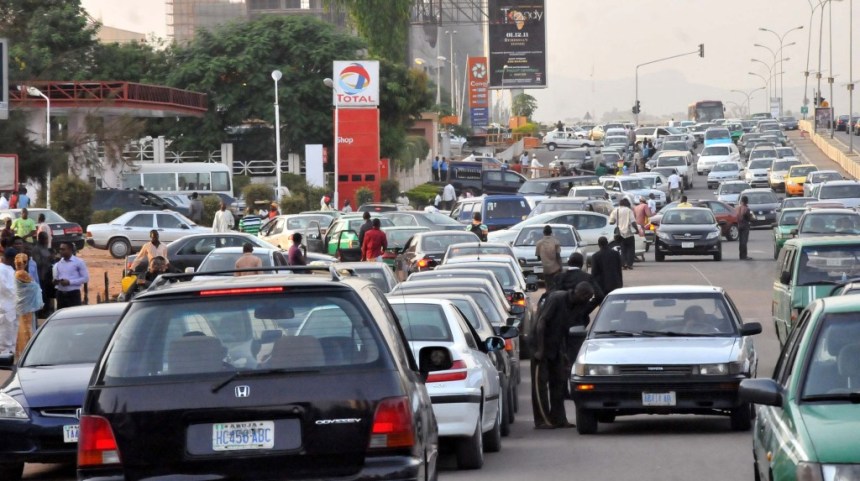
Fuel queues return to Abuja, Ogun, Lagos, others
Fuel shortages hit Abuja, Ogun, and other regions as filling stations close in anticipation of a nationwide protest.
On Friday, many filling stations in Abuja and neighboring states like Niger, Nasarawa, and Kogi halted operations, leading to fuel queues.
Among the closed outlets were those managed by the Nigerian National Petroleum Company Limited (NNPC) and other private retailers such as Salbas Oil, Eterna, and Gegu Oil on the Kubwa-Zuba expressway.
This disruption extended into central Abuja and parts of Niger and Nasarawa states. In Lokoja, the Kogi State capital, filling stations also ceased dispensing fuel.
The situation resulted in long queues at operational outlets like AYM Shafa in Dei-Dei, Abuja, and the NNPC station in Zuba. Additionally, several stations in Lagos shut down on Friday, sparking concerns over potential fuel scarcity.
A tour of various filling stations revealed that most were not dispensing fuel, while the few that did sold at a steep N800 per litre. Oil marketers attributed the closures to both fuel shortages and apprehensions over the impending protest.
READ ALSO:
- Over 180,000 displaced from Gaza’s Khan Younis in four days – UN
- IGP says foreign mercenaries behind planned mass protest
- Arsenal not giving up on Osimhen yet, make contact
Long Queues in Ogun
In Ogun State, the scenario was dire, with motorists facing extended queues. At Quest Filling Station in Magboro, the queue stretched over a hundred meters. Saheed, a commercial bus driver, voiced his frustration after waiting over an hour, unable to pacify his complaining passengers.
Similar scenes played out at NIPCO Filling Station in Magboro, where diesel sold at N1,200 per litre and petrol at N675 per litre. Out of five petrol pumps, only four were functional, causing significant delays.
Minister Appeals for Calm
In light of these events, Heineken Lokpobiri, the Minister of State for Petroleum Resources, appealed for calm and urged Nigerians to avoid the proposed protest. He attributed some station closures to fuel shortages but acknowledged that fear of the protest was a significant factor.
Lokpobiri emphasized the government’s commitment to economic revitalization under President Bola Tinubu, urging unity and patience. He warned against those who might exploit the protest for nefarious purposes and stressed the importance of constructive engagement and dialogue.
The minister reassured Nigerians of President Tinubu’s dedication to addressing the nation’s challenges, calling for support and collaboration to ensure a prosperous future for all.
Fuel queues return to Abuja, Ogun, Lagos, others
(PUNCH)
-

 News3 days ago
News3 days agoNLC can’t withdraw from protest it didn’t organise – Ajaero
-

 News3 days ago
News3 days agoMinimum wage: Akpabio says domestic workers can’t earn less than N70,000
-

 News1 day ago
News1 day agoIslamic scholars warn parents, schools against skipping Primary 6
-

 International1 day ago
International1 day agoNetanyahu, Biden hold talks over tense Gaza ceasefire
-

 News3 days ago
News3 days agoFG unveils training programme for 1,000 Nigerians in AI, blockchain
-
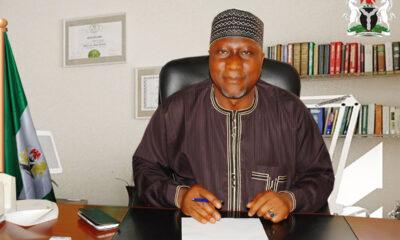
 metro2 days ago
metro2 days agoNERDC Executive Secretary Prof Ismail Junaidu slumps, dies
-

 metro3 days ago
metro3 days agoPastor remanded for allegedly defiling teenager, attempting abortion
-

 metro3 days ago
metro3 days agoMan, 24, jailed 14 years for raping 6-year-old girl in Ekiti

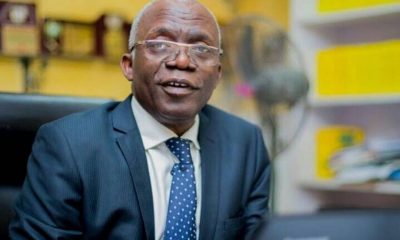







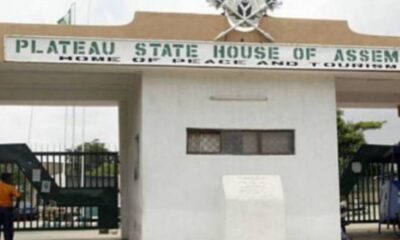




You must be logged in to post a comment Login